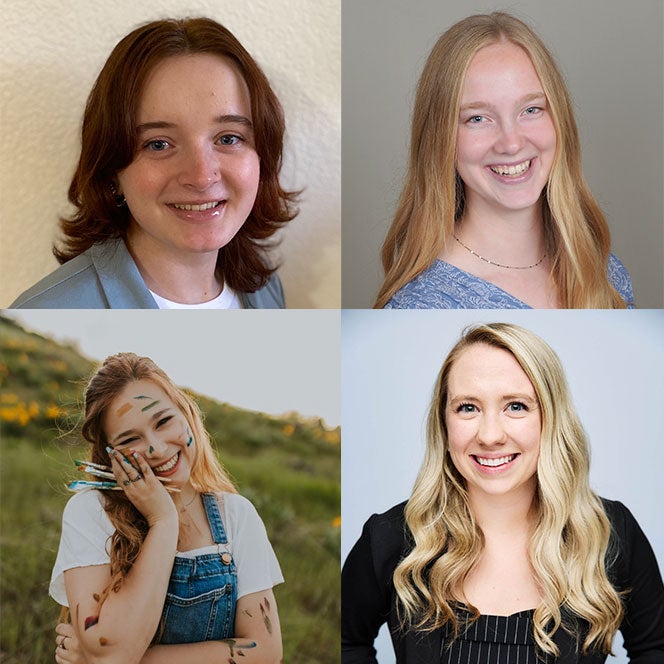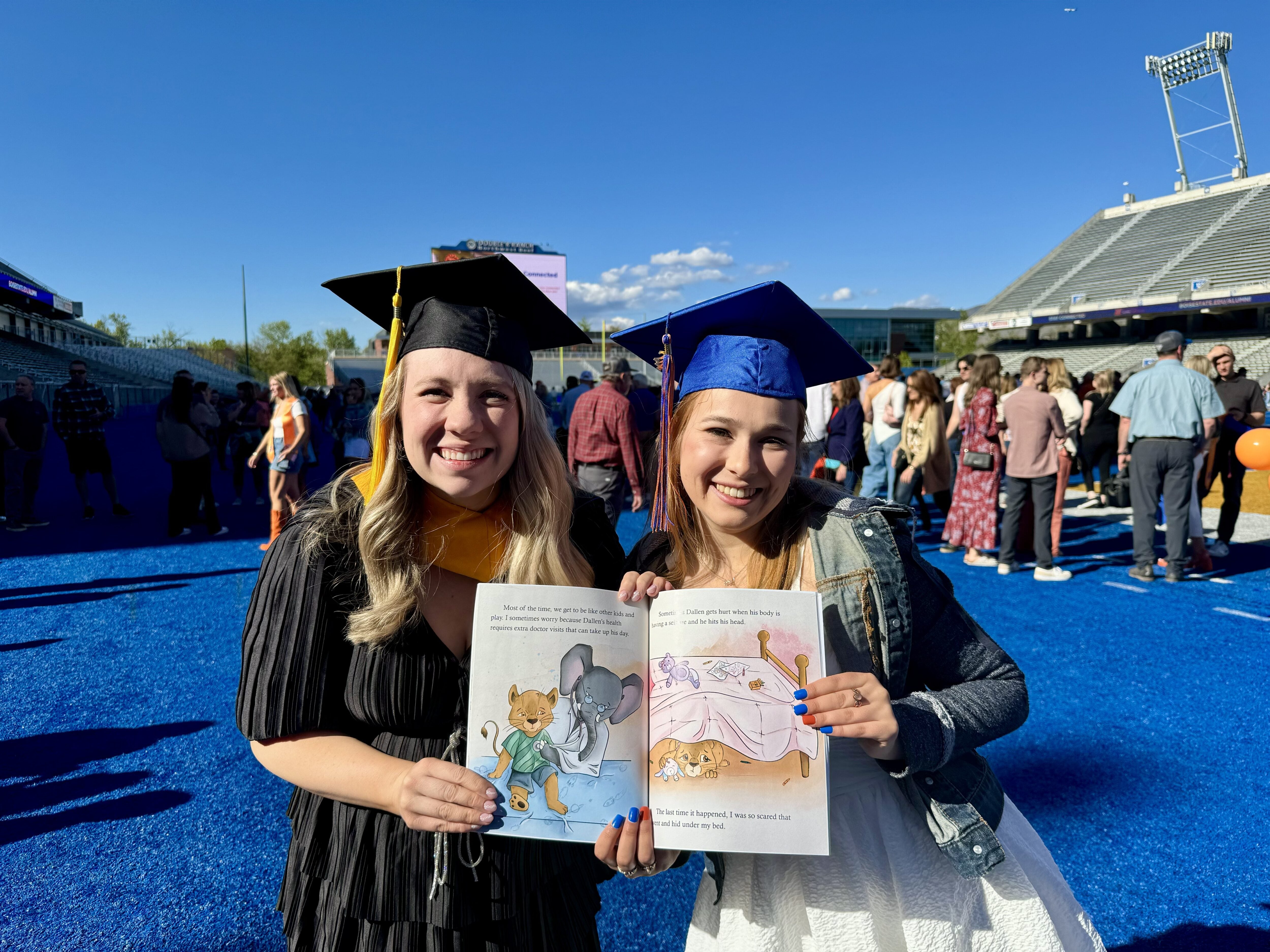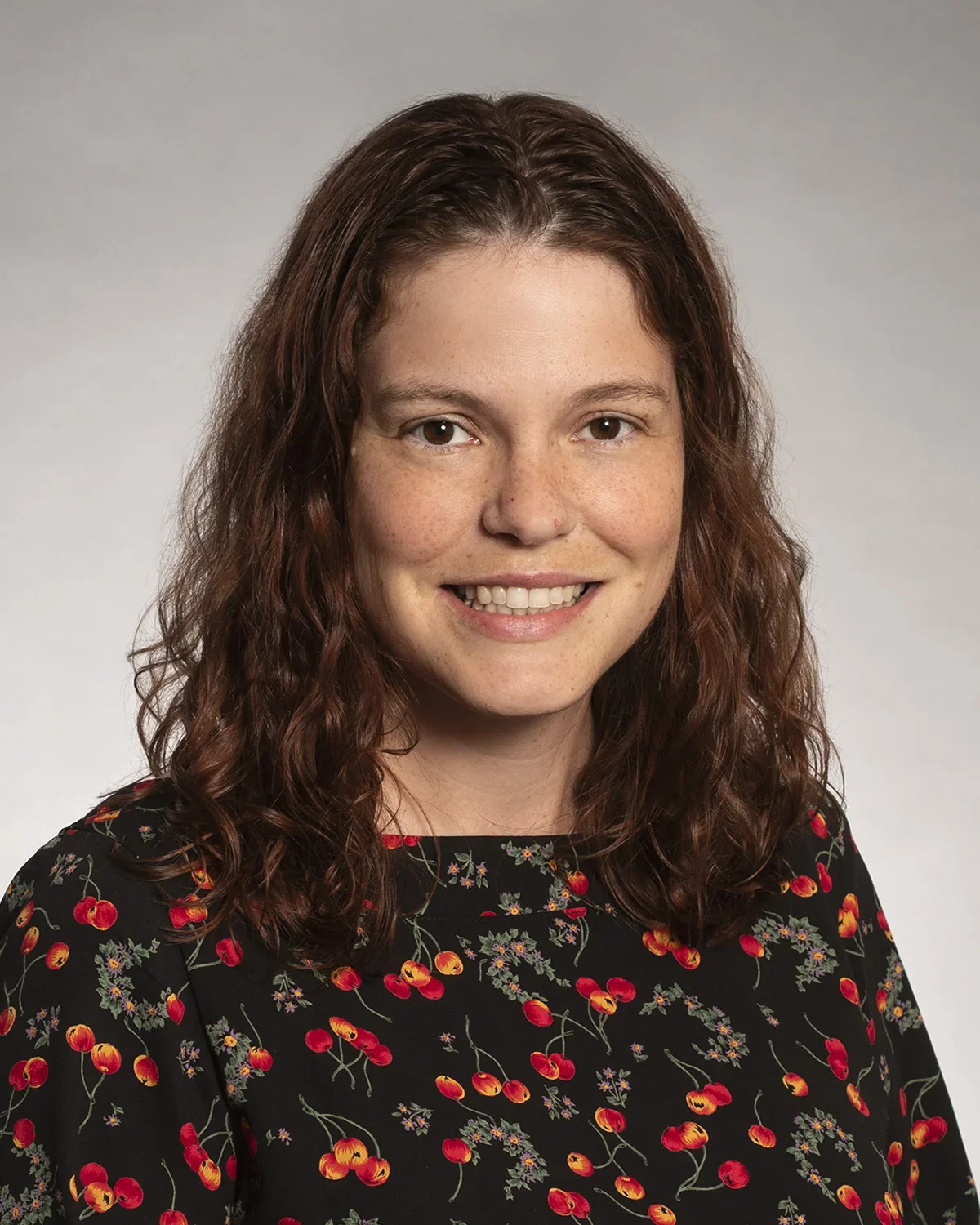
In a unique collaborative effort, four students combined their talents and passions to create resources for children and teens who are affected by rare genetic disorders. Through the capstone course for genetic counseling, two of the students were able to reach out and collaborate with illustration majors to achieve a common goal: empowering and encouraging the younger generation through knowledge and creativity.
Before graduating with her Master of Science in Genetic Counseling, Jessica Mather was able to publish a teen workbook to help the siblings of those who are affected by Angelman syndrome. This rare genetic disorder affects a person’s development and behavior often including severe learning difficulties, speech problems and trouble with movement and balance. Mather has a special connection with this project as her younger brother was diagnosed with Angelman syndrome when he was five years old.
“This project was driven by the understanding that we need more resources for siblings, and in particular, the teenage population, who could greatly benefit from having their unique experiences recognized and normalized” Mather explains.
Mather worked with Avery Worthington, an illustration student with a minor in creative writing. Together they created a workbook to fill a specific gap in the current resources available, all while balancing their other course work for the semester.
“I was honored to get the opportunity to work on this great project,” Worthington said.
“Working with Avery, I am just over the moon at how it looks visually and the cover art adds a level of cohesion which finishes it really well” Mather said.
After final rounds of feedback and finishing touches, the teen workbook is available for order on Amazon. A PDF version is also available online
McKenzie Bell, another genetic counseling alumni and Krista Hamel, an illustration alumni, also worked together to create a similar kind of resource for those affected by Koolen de-Vries syndrome. This rare condition is caused by change in a person’s genes, leading to possible developmental delays, learning difficulties and speech problems along with distinct facial features. Like Mather, Bell had a special connection to Koolen de-Vries as her husband’s cousin was diagnosed with it. Bell says it’s important to foster sibling connections with those who are affected by Koolen de-Vries, as well as their families.
“I have seen the love, patience, compassion and hard work they put into keeping their family strong and connected, and I tried my best to showcase this family relationship in the book” Bell said.
Hamel worked remotely with Bell who was located in Utah at the time. Together, they were able to come up with a vision that would soon come to life, hundreds of miles away.
“We were communicating through emails and then we got to meet up for the first time on the blue and see the book come together, it was really special” Hamel said.

After many hours put into collaboration, edits and emails, the pair was able to publish the book after graduation. A PDF version is also available to view online.

Leslie Ordal, assistant director of genetic counseling as well as the professor of the capstone course, was thrilled to see what the two pairs were able to accomplish together.
“The ethos of our program is to be collaborative and we’re trying to facilitate more partnerships between students, patients and families for these projects. Bringing the illustration students for mutual benefit fits perfectly with our vision” Ordal said.
Looking ahead, Ordal hopes there will be more collaboration between genetic counseling and illustration students, as well as additional engagement with students from other programs.